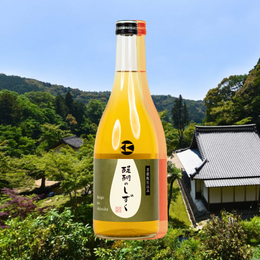
Tucked within the Yamagata Prefecture lies the Tatenokawa Brewery which was founded in 1832. Unlike most breweries which produce a range of styles, Tatenokawa has focused with laser-like precision on premium Junmai Daiginjo. Here, rare and high grade rice is polished and fermented to yield elegant and fragrant luxury sakes sought after by sake connoisseurs.
Today, we're delving into one of Tatenokawa’s signature brews – the Soube Wase Junmai Daiginjo. The name 'Soube Wase' actually refers to an ancient rice variety. This variety holds a significant place in Japanese rice history, being the ancestor of sone of the most important sake rice types like Koshihikari, Akita Komachi, Sasa Nishiki, and Kame no O – all renowned for their premium quality in sake production and cuisine.

This rice variety was practically lost to history and hasn’t been used for at least a hundred years, as farmers and sake brewers found it too difficult to work with. But the brewery saw fit to revive the Soube Wase through nothing short of herculean effort.


Tatenokawa first secured less than 2 kgs of preserved seeds from the Japanese Agricultural Experiment Station and, through dedicated collaboration with agricultural experts, managed to recultivate this elusive rice strain.
Yet brewing sake with the Soube Wase rice was initially like fitting a round peg into a square hole. Unlike modern sake rice like Yamadanishiki, this ancient variety simply wasn’t made for sake brewers. It has an unusually hard texture, a small shinpaku (the starchy core of the grain), very high protein levels in each grain.
This made it necessary to carefully polish the rice to remove the proteins without shattering the grain, and a modified fermentation process that could penetrate the hard texture of the rice to access the starch.

Tatenokawa rose to the occasion – over three long years, its researchers meticulously researched and developed new techniques to fully harness the hidden potential of Soube Wase. They refined the koji-making processes and carefully calculated water absorption ratios, which are key to gently coaxing out the hidden flavours within the grain.
Let’s give this a taste then.
Soube Wase 2022 Timeless Sake from Tatenokawa, Junmai Daiginjo, 15% ABV – Review

Tasting Notes
Nose: Clean and refined. Right away, I get a very mineral-driven scent with fresh elements of delicate florals and a touch of sweet apple. There's also an unmistakable aroma of steamed sushi rice.
Palate: Very luscious, very viscous with a medium bodied texture – the texture is surprisingly thick and almost creamy. On the tongue, it has a gentle sweetness that reminds me of rice pudding, but way less saccharine. Fruit flavours really start to shine here with lots of melon and ripe peach, and some of those floral notes coming back in.
It's all undercut by a savoury, umami richness and a layered acidity that adds some interesting depth.
Finish: This one lingers in a really pleasant way. It stays clean, never getting muddled, and finishes with a refreshingly dry karakuchi sensation.

My Thoughts:
This one’s a premium Junmai Daiginjo for sure. It is refined but not overly so – it’s got a lot of nuances going on, and yet packaged in a very precise way. The clean, luscious fruitiness and lack of anything too sweet, too yeasty or earthy make it a crowd-pleaser - reminding me of the Dassai sakes I enjoy. Yet it’s a bit more nuance than that – it balances sweetness with acidity and umami very well.
If you're a little bored of premium Junmai Daiginjo that do not offer enough intrigue or interesting flavours, or try dipping your toes into Soube Wase. It’s a great exploration for a Junmai Daiginjo lover.
My Rating: 7.5/10
|
Score/Rating Scale :
|

@CharsiuCharlie







